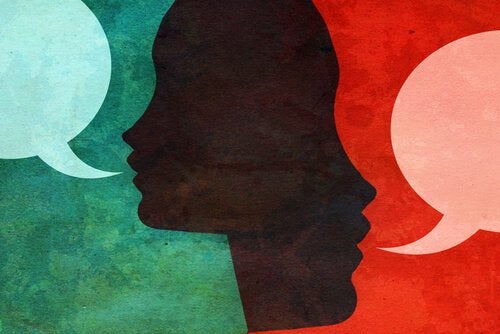John Ruskin said that “He who has the truth in his heart should never fear that his language lacks the power of persuasion. “This is probably the best option to be convincing. However, psychology has sought other theories that can be of great use at times.
Before we continue, let’s define persuasion as the ability to seduce, convince, impress, or fascinate a person. In the context of psychotherapy, it is explained as the treatment of diseases by persuasion or suggestion.
- Perhaps the term persuasion has acquired some negative connotations in recent years.
- We live in a climate of political instability and high consumption in which we are constantly bombarded by persuasive messages whose interests are not always as transparent as they should be.
- Or are far from belonging.
- To noble causes.
At this point, it is necessary to differentiate between persuasion and manipulation. The difference between the two clashes with honesty, which is present in persuasion and absent in manipulation. In persuasion, the other knows, because we say clearly that we are trying to convince him of something; in the second, this information is usually hidden or disguised.
Persuasion, understood as the ability to honestly influence the other person, is a skill that brings many benefits to the people who develop it, so it is important to know some theories that have been consolidated over time.
A certain attitude expressed with confidence will be very resistant to persuasion, but it softens if expressed with uncertainty. In this case, emotion-based arguments are very resistant to logic, the same goes for the other way around.
So, put into practice this hypothesis promulgated by Clarkson, Tbormala and Rucker, your chances of influence will increase if the attitudes you conceive have the same meaning as those of the interlocutor, this is exactly what gives the theory its name: if you want to persuade someone on an issue and supporting the same team and another knows this coincidence, the power of their arguments will be amplified.
This theory emphasizes four principles for seducing a person: making it easier to do as complete as possible, making the information true, relevant to the subject, and presenting it so that the other can understand.
This theory, which may seem false because it includes the word manipulation, is actually very logical and sensible. As Ruskin said, if the truth is on your side, you should not be afraid to be persuasive, but you must be very prepared and have an in-depth knowledge of the subject, as well as know how to explain it, to convince someone.
However, defending yourself is complex, especially if your interlocutor has control over words, you have to observe their nonverbal language that reflects the contradictions between the security of their word and what their actions say, this, having little knowledge on the subject, can indicate the most fragile part of their argument.
This psychological theory to persuade is widely used in advertising, it is built from the networks of associations that are established in our writing, so, when you activate a memory, concept or sensation, it becomes easier to activate, for a limited time, everything associated For example, if you talk about the breakfasts of your childhood, it will be much easier than if you talk about the brand of milk that you drank afterwards , you tend to buy it.
In fact, the preparation is very subtle. In this way, the person who is the subject of the stimulus is not aware of how she is influenced, even if she is known in a framework of influence, as is the case with an advertising exhibition. Otherwise we’d be talking about manipulation.
Sigmund Freud was certainly a genius; not science, but advertising; not for rigorous testing, but for persuasion. ?- Hans Eysenck-
It is a social norm widely accepted by most people, it is so simple because if you give something waiting for the favor to return, this is not a voluntary act, but established and accepted by all.
Implementing this policy can be as simple as thanking, in the face of an offer you expect your interlocutor to return that courtesy to you, as the level of favor increases, reciprocity is also expected to increase.
In a way, all human beings must control their own world. Having freedom of choice about the environment is important. Therefore, when something becomes scarce, desire increases.
This psychological technique is also widely used in advertising, think of famous slogans and is used as ‘only until stocks run out’, so if you consider yourself a victim of this practice, ask yourself if you really need that asset, feeling or the weird. emotion offered to you.
“Any change not chosen by us is not sincere and will therefore be mediocre and ephemeral, if it occurs. -Rafael Santandreu-
All these psychological theories about persuasion go beyond mere theory. They have been put into practice and proved their worth. In fact, it’s very likely that you’ve used them yourself at some point without knowing you’re using them.

